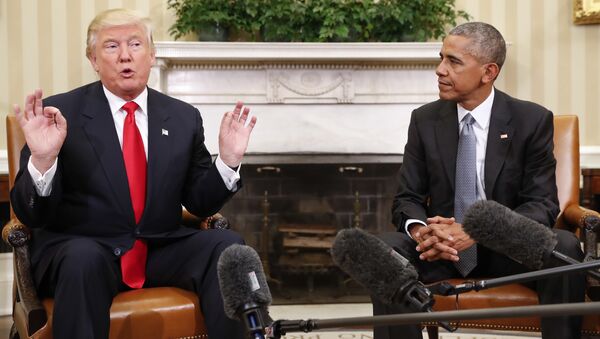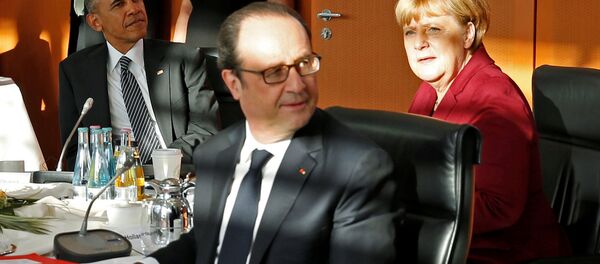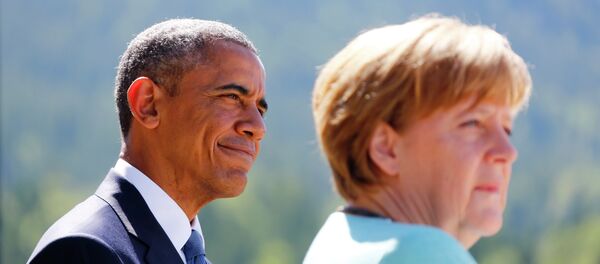In his meeting in Berlin with German Chancellor Angela Merkel, French President Francois Hollande, British Prime Minister Theresa May, Spanish Prime Minister Mariano Rajoy, and Italian Prime Minister Matteo Renzi, Obama discussed a number of foreign policy issues of concern to the Transatlantic alliance, including Ukraine, Syria, Iraq, Libya, and the fight against Daesh (ISIL/ISIS) terrorism.
A statement released following the meeting by the White House also said that the leaders had "affirmed the importance of continued cooperation through multilateral institutions, including NATO."
Russian commentators say that Obama's final European tour was the outgoing administration's final attempt to provide European leaders with assurances about the continuity of US foreign policy, including as far as relations with Moscow are concerned, and to try and box-in President-elect Trump once he takes office in January.
In its essence, the expert noted, this signal was that "in the event of 'improper' behavior by Trump, the Congress, the State Department and the Pentagon are to 'correct' him." Secondly, "it is also an attempt to give a signal to Russia not to expect an easy life under any US president."
Ultimately, Trukhachev stressed, "Obama is trying to make sure that Trump has to deal with a European Union unified in its anti-Russian impulses."
In reality, the analyst said, the tour "turned out to be less triumphant. The topic of sanctions, of course, did not seem as sharp only a week ago. But now Europe's leaders are trying to figure out what to do. And I'm afraid Obama himself doesn't have an answer."
At the same time, Kornilov noted that he believes even President-elect Trump doesn't know exactly how to approach Russia and the sanctions issue, including in the Ukrainian crisis and the Crimean question. During the campaign, Trump had one set of foreign policy advisors, but now, the list of candidates for Secretary of State is composed entirely of anti-Russian hawks "who are not going to restore good relations with Moscow," the analyst explained.
Therefore, the expert stressed that while Russia can and must do everything in its power to ensure improved relations with the new administration, it should also prepare for a scenario where Trump is tamed by the establishment of his party, and follows the advice of his new (anti-Russian) foreign policy advisors.




